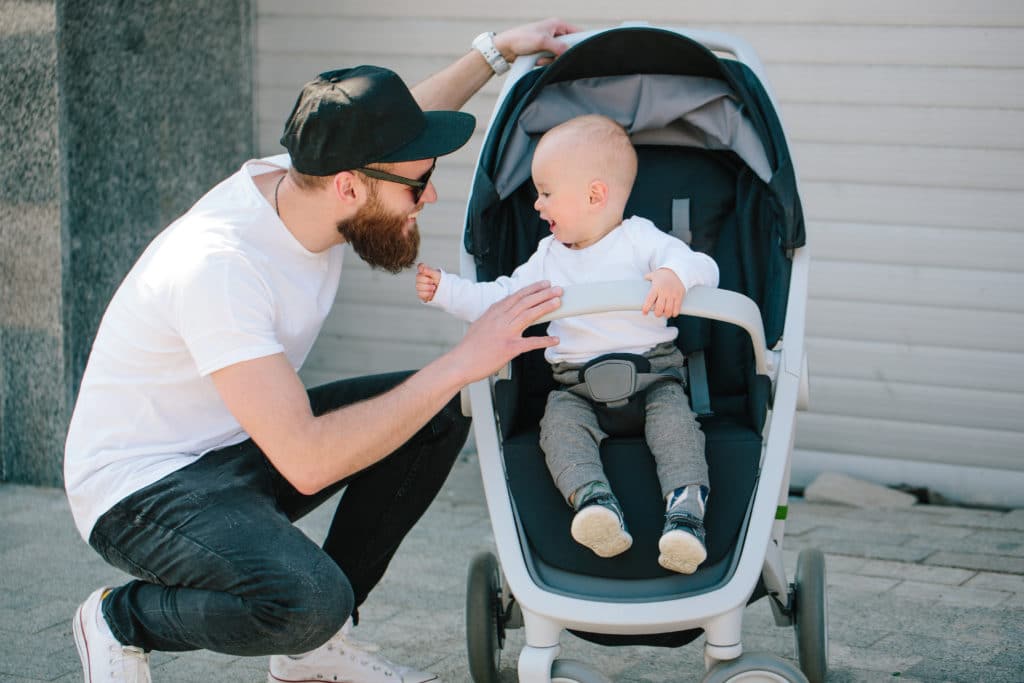Prime Minister Anthony Albanese’s push to extend paid parental leave (PPL) and incorporate “use it or lose it” provisions to encourage fathers to take parental leave, should be commended.
Advocates have been pushing for significant transformation in the space for years, highlighting the opportunity in PPL not only to support women’s workforce participation but also to encourage more shared care at home.
As such, this initiative announced over the weekend is an excellent first step.
But the wait for significant PPL reform is far from over. The Albanese government could go further – offering something closer to a replacement wage to those taking parental leave.
Meanwhile, we’ll be waiting another four years until 2026 for this scheme to fully come in. That’s another four years of parents contending with a leave system that’s unfit for modern families, and another four years of Australia remaining close to the bottom of OECD countries on paid parental leave. The announced reform also fails to address calls for the government to pay superannuation on top of PPL, which has been identified as a key step for addressing the super gender gap and retirement inequity.
Still, there are promises to start modernising the systems from July 2023, with the length of time provided starting to increase from July 1 2024 when an additional two weeks will be provided to the current 18 weeks on offer, followed by another two in 2025 and then the final weeks in 2026.
And overall, it’s a somewhat bold announcement at a time when spending will be highly scrutinized and given the rising risks of a global recession ahead – which may also explain some of the delays in seeing the scheme fully implemented. The Business Council of Australia is happy. While the Australian Council of Trade Unions have welcomed the news as a “great step forward” but declared they will continue to campaign to lift the payment and see superannuation also paid. The Coalition will wait to say the full details but has indicated it welcomes the move.
The Greens, however, have lashed out at the limitations of the reforms announced, with Senator Larissa Waters describing it as an “insult” to those who’ve been waiting more than a decade for change.
That long wait has seen paid parental leave becoming a political football, kicked around by multiple prime ministers – including Tony Abbott who once suggested the most generous schemes of all, albeit one that failed to address the critical need for promoting shared care.
This is safe reform. It initiates some changes, without stirring a national debate that’ll see the blueprint ultimately ripped up yet again with new parents left with the same flawed system.
What is particularly refreshing in the weekend’s announcement is the language the Albanese Government is using around paid parental leave, along with the fact his government appears to have answered to reforming paid parental leave as one of the core initiatives to come out of the Jobs & Skills Summit last month.
Albanese is positioning these PPL changes as economic reform, rather than lumping it into a bucket of “women’s stuff”, as was previously done under the former government where paid parental leave and early childhood education reform were positioned together for the Morrison Government to claim it was investing billions in women’s economic security (it wasn’t).
“It’s a modern policy, for modern families. It delivers more choices. It offers greater security – and it rewards aspiration,” Albanese said on the policy. “Our plan will mean more families take up this leave, share in that precious time – and share the caring responsibilities more equally.”
And he noted the role employers have in also supporting shared care at home.
He said the policy is a “baseline, a national minimum standard,” Albanese said. “We are encouraged that there are already employers across Australia competing to offer working parents the best possible deal. And we want to see more of it.”
Meanwhile, Minister for Women Katy Gallagher also shared language moving beyond paid parental leave being a “good thing for women” to language that acknowledges how the current system is financially impacting women.
“Right now, this burden is borne disproportionate by women, but we know that good women’s policy is also good economic poly, and this decision is evidence of that,” she said.

